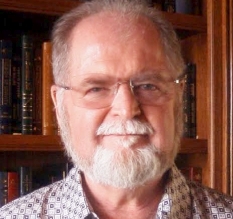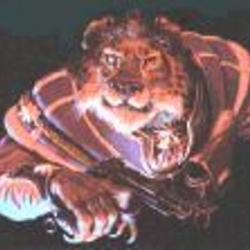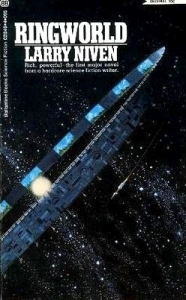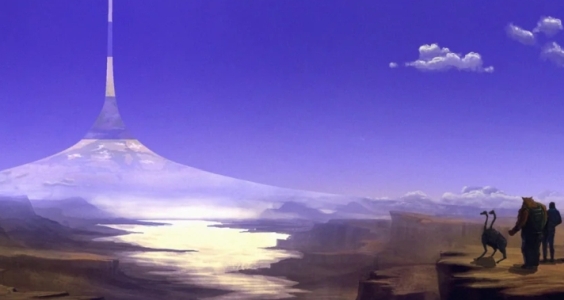  Larry Niven is known as an author for his hard science fiction, using big but authentic scientific concepts. His Known Space series is one of the most popular "future history" sagas in SF and includes the epic novel Ringworld, one of the few novels to have won both the Hugo and Nebula awards, as well as the Locus and Ditmar awards, and which is recognized as a milestone in modern science fiction.
Larry Niven is known as an author for his hard science fiction, using big but authentic scientific concepts. His Known Space series is one of the most popular "future history" sagas in SF and includes the epic novel Ringworld, one of the few novels to have won both the Hugo and Nebula awards, as well as the Locus and Ditmar awards, and which is recognized as a milestone in modern science fiction.Niven's science fiction the best kind, amazing for its ability to build believable societies where we see how people deal with new technologies on a day-to-day basis, while telling a compelling story. Niven's vast collection of short stories, novelettes and books, including a large number of book series, defines the essence of what science fiction as a genre is all about. He takes a handful of futuristic or technological ideas and weaves a society around them, exploring what their effects would be on the people who live with them every day. The number of such ideas seems endless; the societies he creates are at once both intimately familiar and strange, and always leave you wanting more. The worlds he has created have been adopted by other writers, who create their own stories within those settings. Some of the conepts explored in his stories include:
The number of incredible 'ideas' embedded in Niven's stories and novels is amazing, but the strength of his work is not just in these new concepts, but, like in all good science fiction, it's in the exploration of how they affect future societies and the people who live there.  Niven also often includes elements of detective fiction and adventure stories in his works. His fantasy writing includes his 'The Magic Goes Away' series, which makes magic a non-renewable resource. Niven also often includes elements of detective fiction and adventure stories in his works. His fantasy writing includes his 'The Magic Goes Away' series, which makes magic a non-renewable resource. Niven also created an alien species, the Kzin, who were featured in a series of collections, the 'Man-Kzin Wars', where a multitude of other authors created their own stories in that universe. Larry Nivn has received the Nebula Award, five Hugo Awards, four Locus Awards, two Ditmars, the Prometheus, and the Robert A. Heinlein Award, among other honours. Most recently, the Science Fiction and Fantasy Writers of America have presented him with the Damon Knight Memorial Grand Master Award, given for Lifetime Achievement in the field. Perhaps Niven's best known work is 'Ringworld', a 1970 science fiction novel set in his Known Space universe and considered a classic of science fiction literature. Ringworld tells the story of Louis Wu and his companions on a mission to the Ringworld, a rotating wheel artificial world, an alien construct in space 300 million kilometres in diameter. Niven later added three sequel novels and then cowrote, with Edward M. Lerner, four prequels and a final sequel; the five latter novels constitute the Fleet of Worlds series. All the novels in the Ringworld series tie into numerous other books set in Known Space. Ringworld won the Nebula Award in 1970, as well as both the Hugo Award and Locus Award in 1971   |